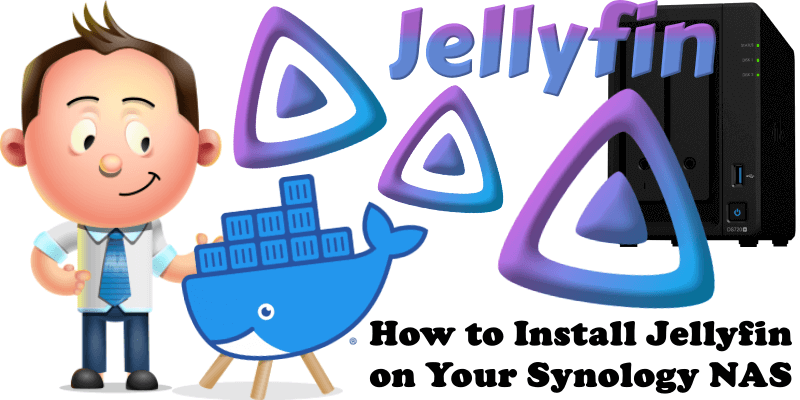
Jellyfin is a free Software Media System that puts you in control of managing and streaming your media. It is an alternative to the proprietary Emby and Plex, to provide media from a dedicated server to end-user devices via multiple apps. Jellyfin is descended from Emby’s 3.5.2 release and ported to the .NET Core framework to enable full cross-platform support. There are no strings attached, no premium licenses or features, and no hidden agendas: just a team who want to build something better and work together to achieve it. In this step by step guide I will show you how to install Jellyfin on your Synology NAS using Docker. Note: You can also install Jellyfin with Hardware Transcoding if your Synology NAS supports it.
STEP 1
Please Support My work by Making a Donation.
STEP 2
Install Container Manager via Synology “Package Center”. If you run an older DSM version (under 7.2), search for Docker instead of Container Manager.
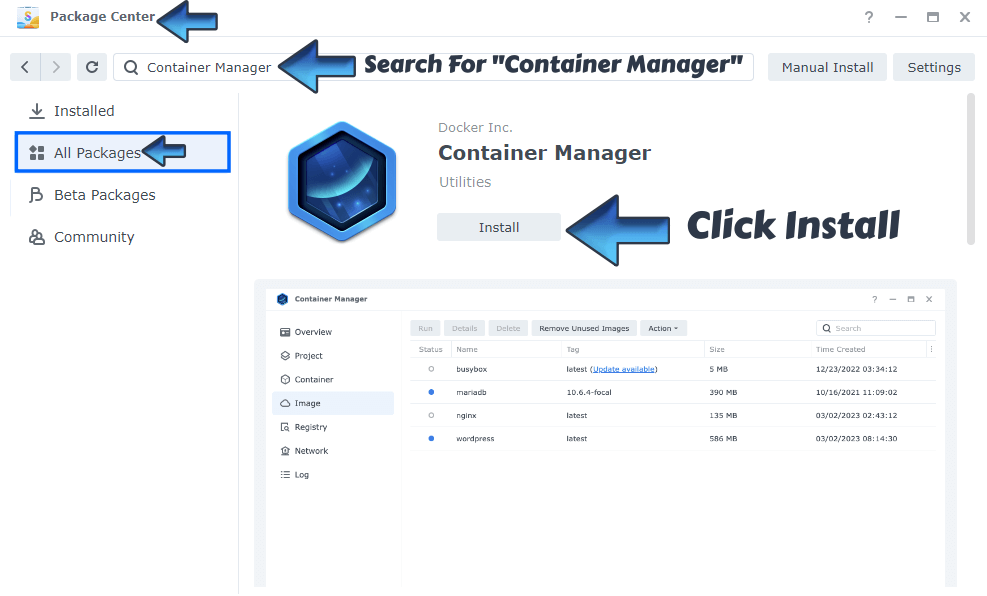
STEP 3
Go to File Station and open the docker folder. Inside the docker folder, create a new folder and name it jellyfin. Follow the instructions in the images below.
Note: Be careful to enter only lowercase, not uppercase letters.
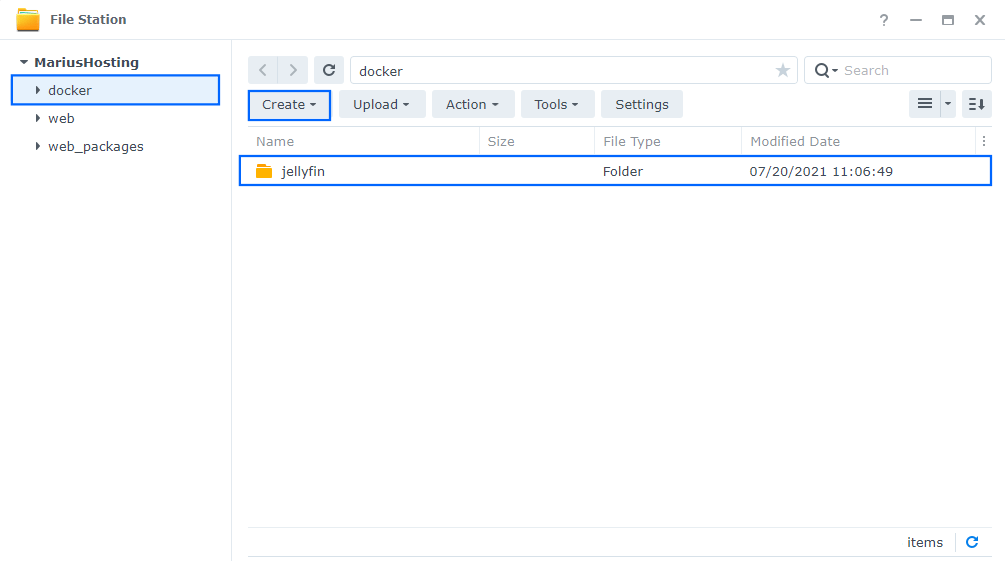
STEP 4
Inside the jellyfin folder you have previously created at STEP 3, create two new folders and name one cache and the other one config. Follow the instructions in the image below.
Note: Be careful to enter only lowercase, not uppercase letters.
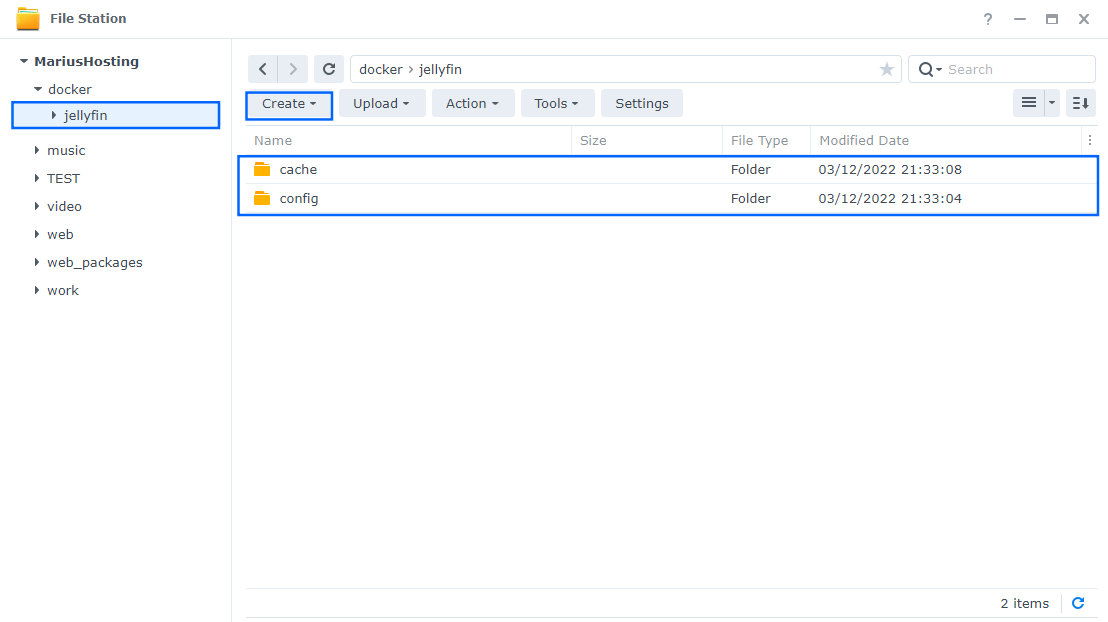
STEP 5
Go to Control Panel / Task Scheduler / Create / Scheduled Task / User-defined script. Follow the instructions in the images below.
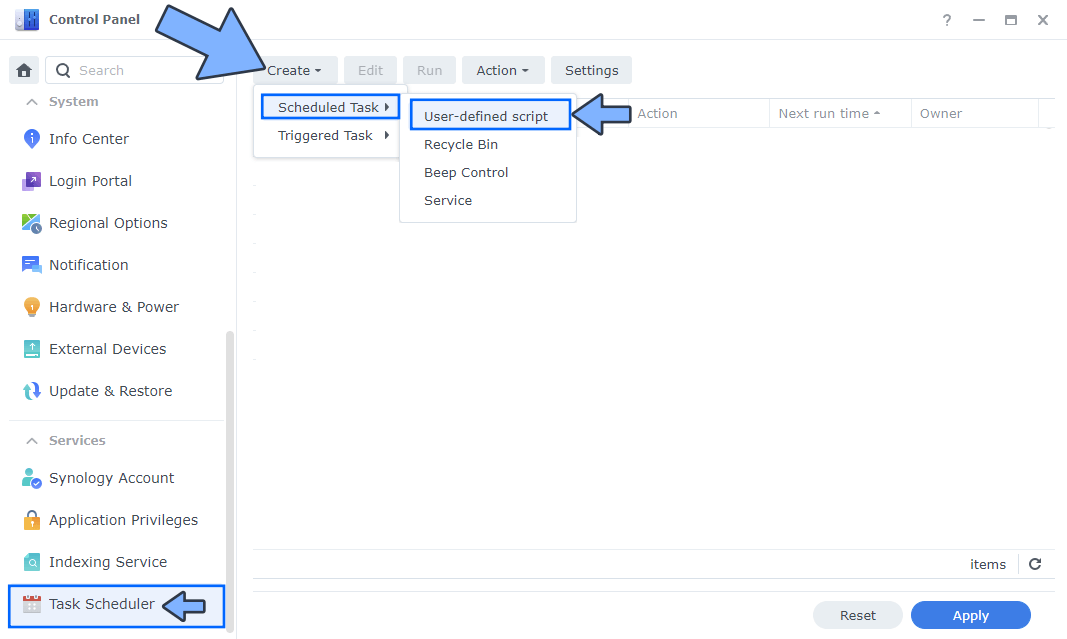
STEP 6
Once you click on User-defined script a new window will open. Follow the instructions below:
- General: In the Task field type in Install Jellyfin. Uncheck “Enabled” option. Select root User.
- Schedule: Select Run on the following date then select “Do not repeat“.
- Task Settings: Check “Send run details by email“, add your email then copy paste the code below in the Run command area. After that click OK.
docker run -d --name=jellyfin \ -v /volume1/docker/jellyfin/config:/config \ -v /volume1/docker/jellyfin/cache:/cache \ -v /volume1/web/movies:/media \ --user 1026:100 \ --net=host \ --restart always \ jellyfin/jellyfin
Note: Before you paste the code above in the Run command area below, change the value numbers for – – user with your own UID and GID values. (Follow my step by step guide on how to do this.) 1026 is my personal UID value and 100 is my personal GID value. You have to type in your own values.
Note: in the code above after -v /volume1/docker/jellyfin/cache:/cache \ you have to add your personal path to movies. For example I have used my personal movies path folder -v /volume1/web/movies:/media \ Change it according to your preferences. -v /path/toyour/movies:/media \
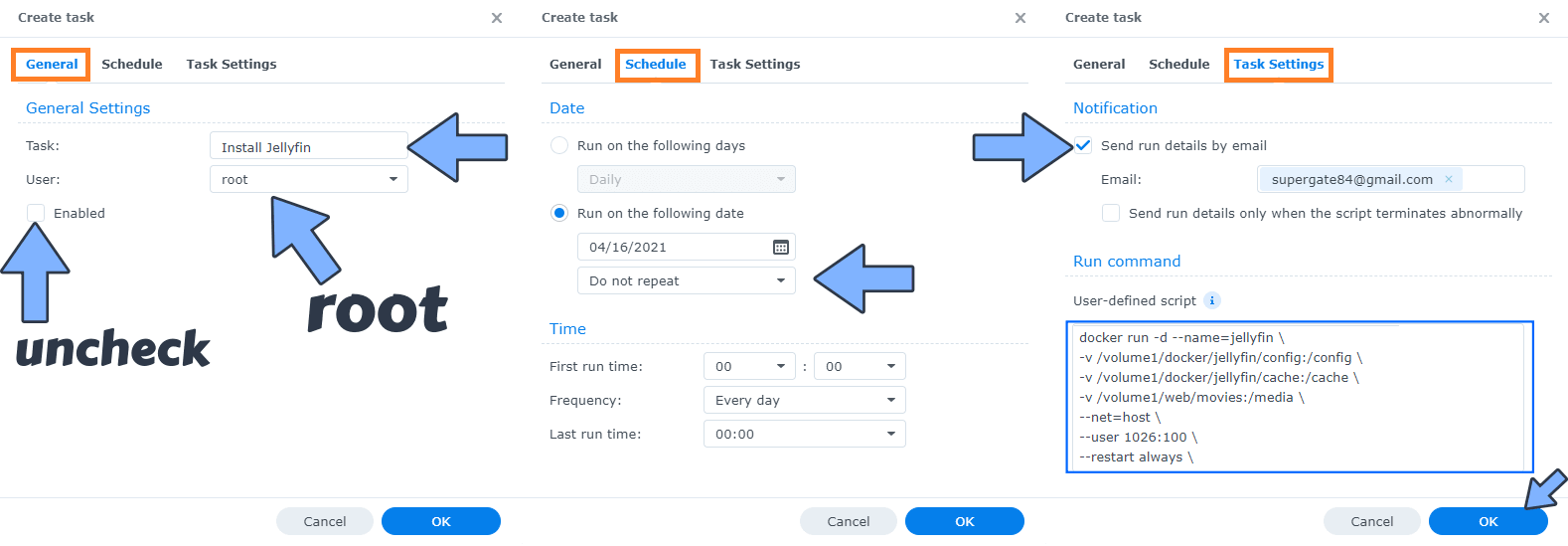
STEP 7
After you click OK on STEP 6 a new warning pop up window will open. Click OK.
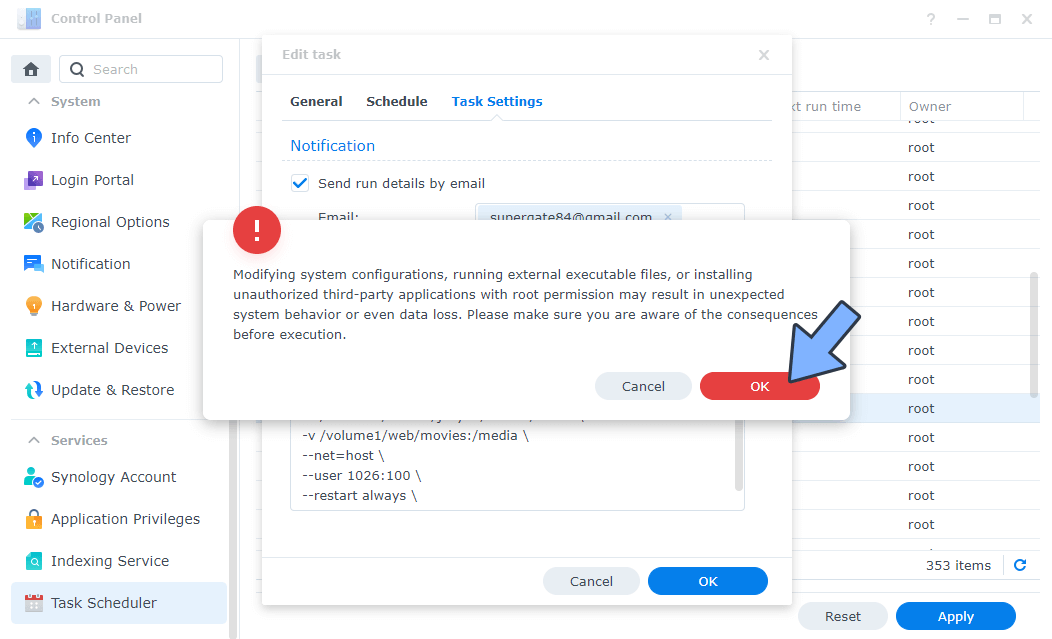
After you click OK, type in your DSM Password then click Submit. Follow the instructions in the image below.
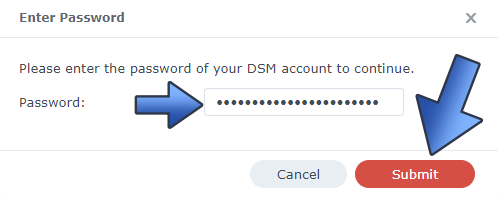
STEP 8
After you click Submit on STEP 7, select your “Install Jellyfin” Task then click the “Run” tab. You will be asked to run Install Jellyfin – click OK. Follow the instructions in the image below.
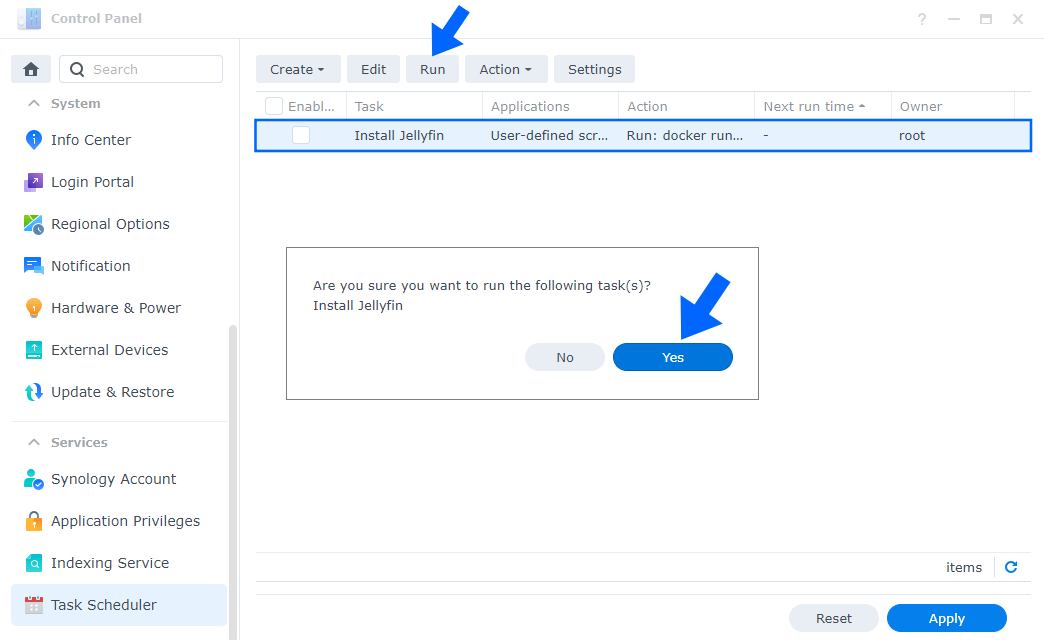
STEP 9
🟢Please Support My work by Making a Donation. Almost 99,9% of the people that install something using my guides forget to support my work, or just ignore STEP 1. I’ve been very honest about this aspect of my work since the beginning: I don’t run any ADS, I don’t require subscriptions, paid or otherwise, I don’t collect IPs, emails, and I don’t have any referral links from Amazon or other merchants. I also don’t have any POP-UPs or COOKIES. I have repeatedly been told over the years how much I have contributed to the community. It’s something I love doing and have been honest about my passion since the beginning. But I also Need The Community to Support me Back to be able to continue doing this work.
STEP 10
The installation process can take up to a few seconds/minutes. It will depend on your Internet speed connection. Now open your browser and type in http://Synology-ip-address:8096 Select your preferred display language, then click Next. Follow the instructions in the image below.
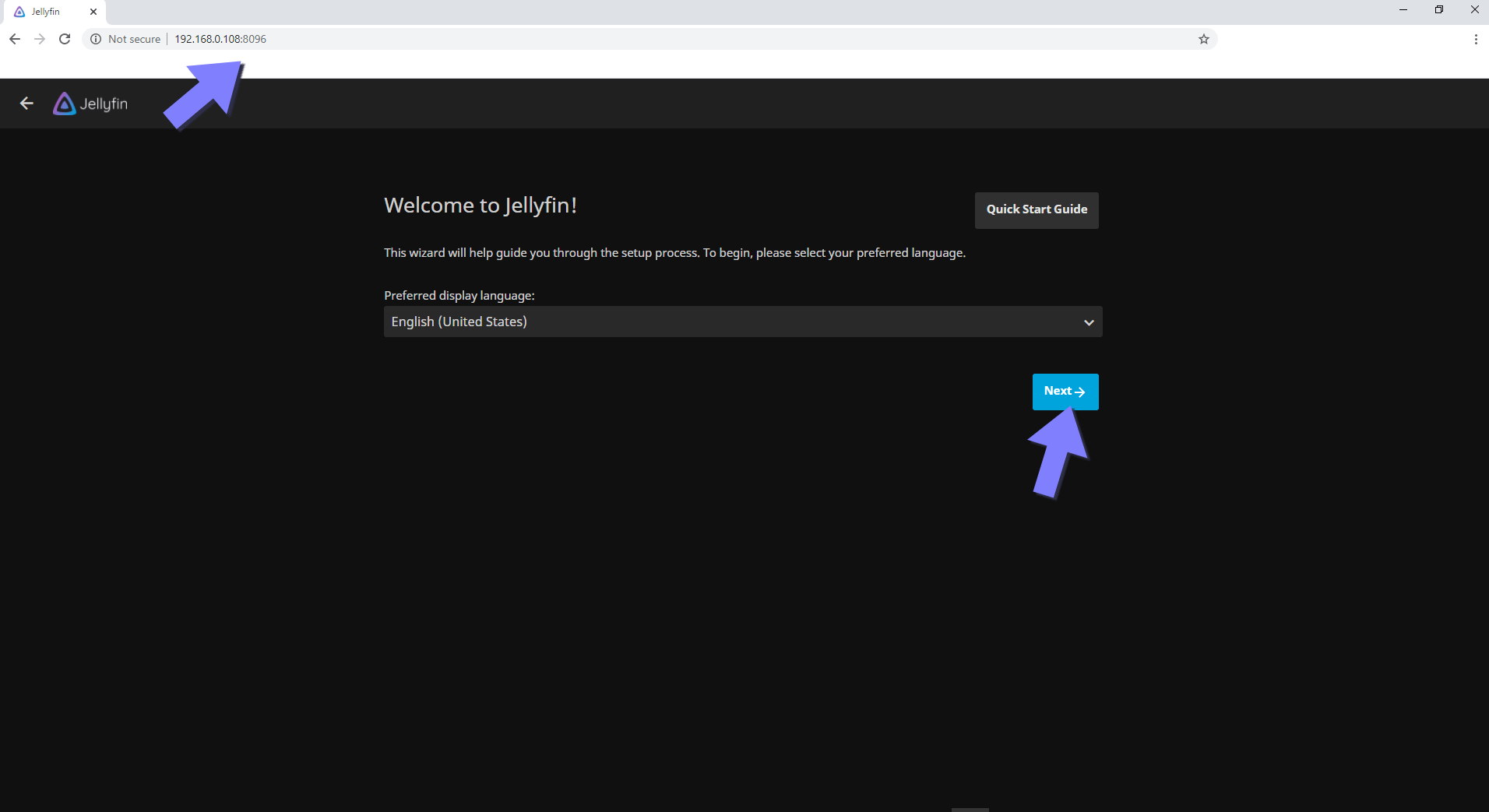
STEP 11
Choose your own Username, Password and Confirm Password then click Next. Follow the instructions in the image below.
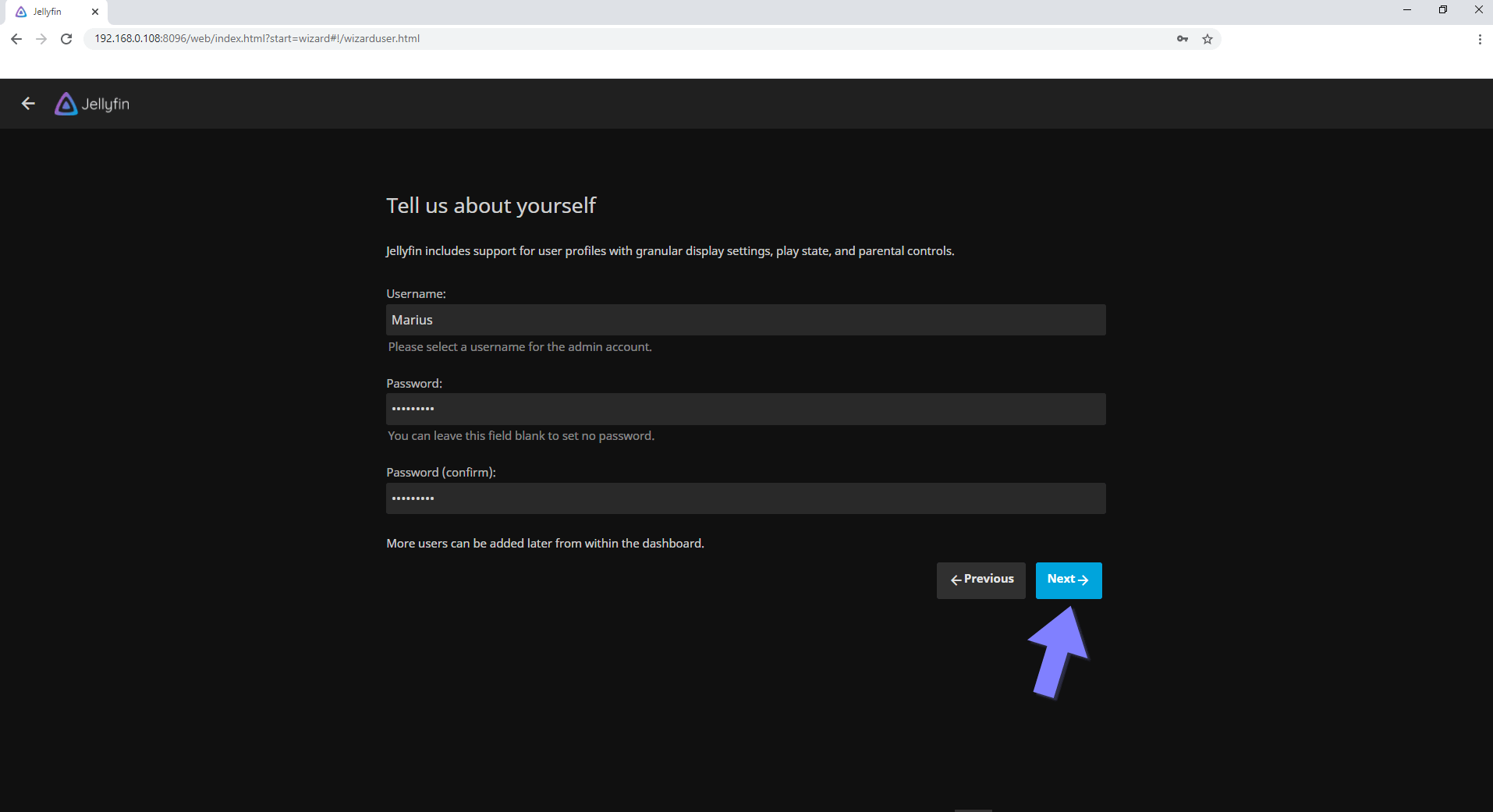
STEP 12
Select your /media folder where your videos are saved. Click Add Media Library. Follow the instructions in the image below.
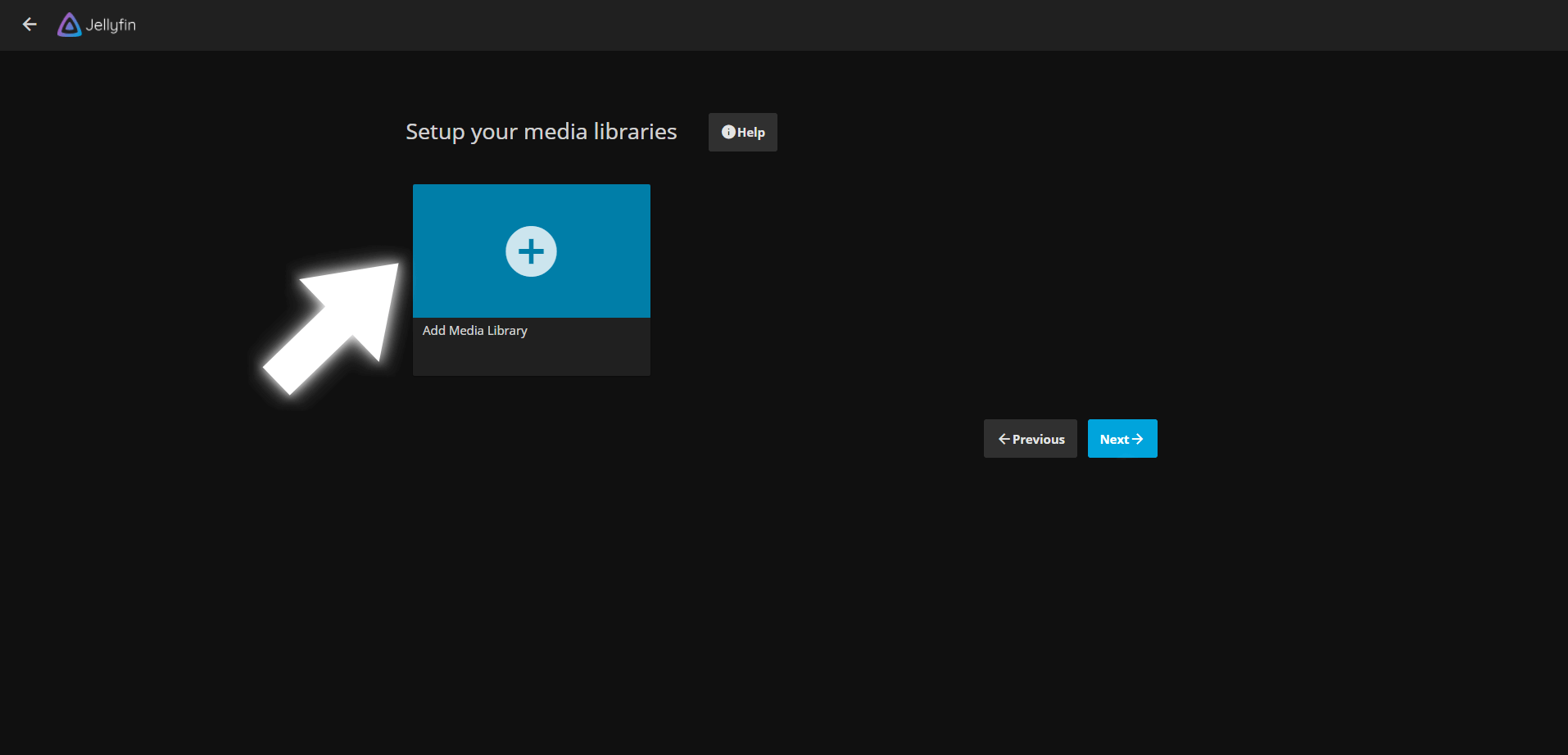
STEP 13
Select Movies as Content type, then click Folders +. Follow the instructions in the image below.
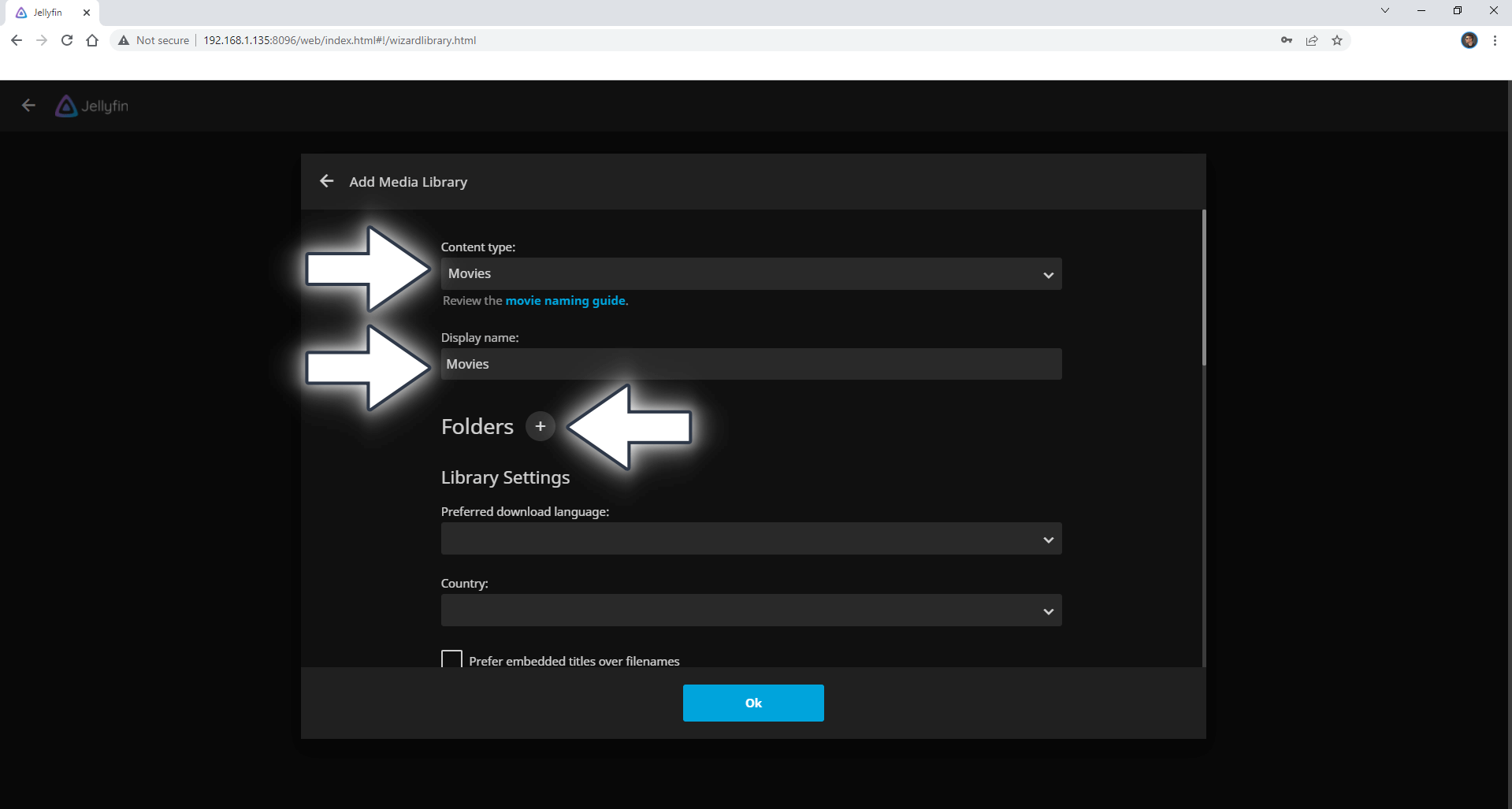
STEP 14
Select the /media Folder then click Ok. Follow the instructions in the image below.
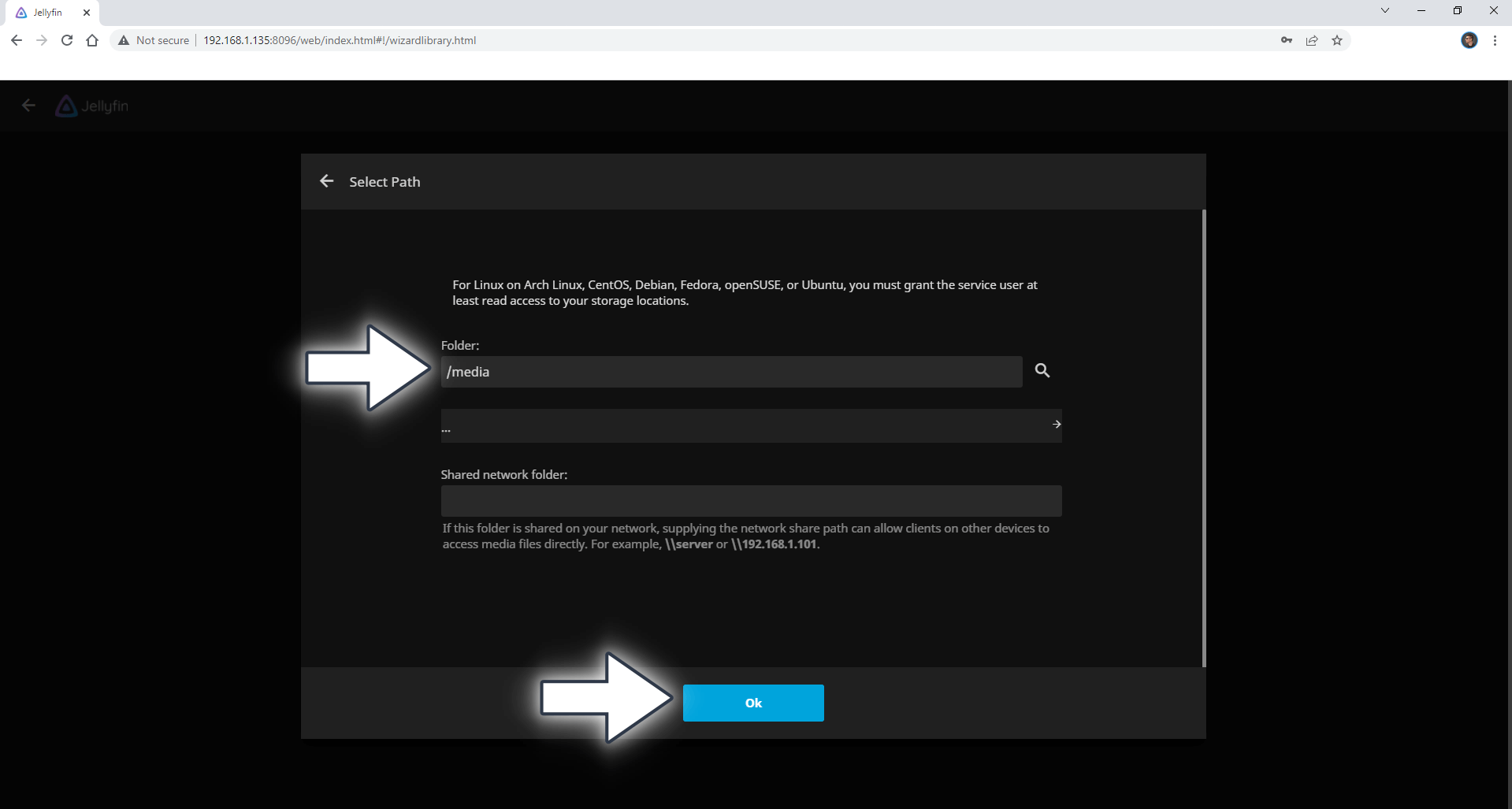
STEP 15
Click Ok again. Follow the instructions in the image below.
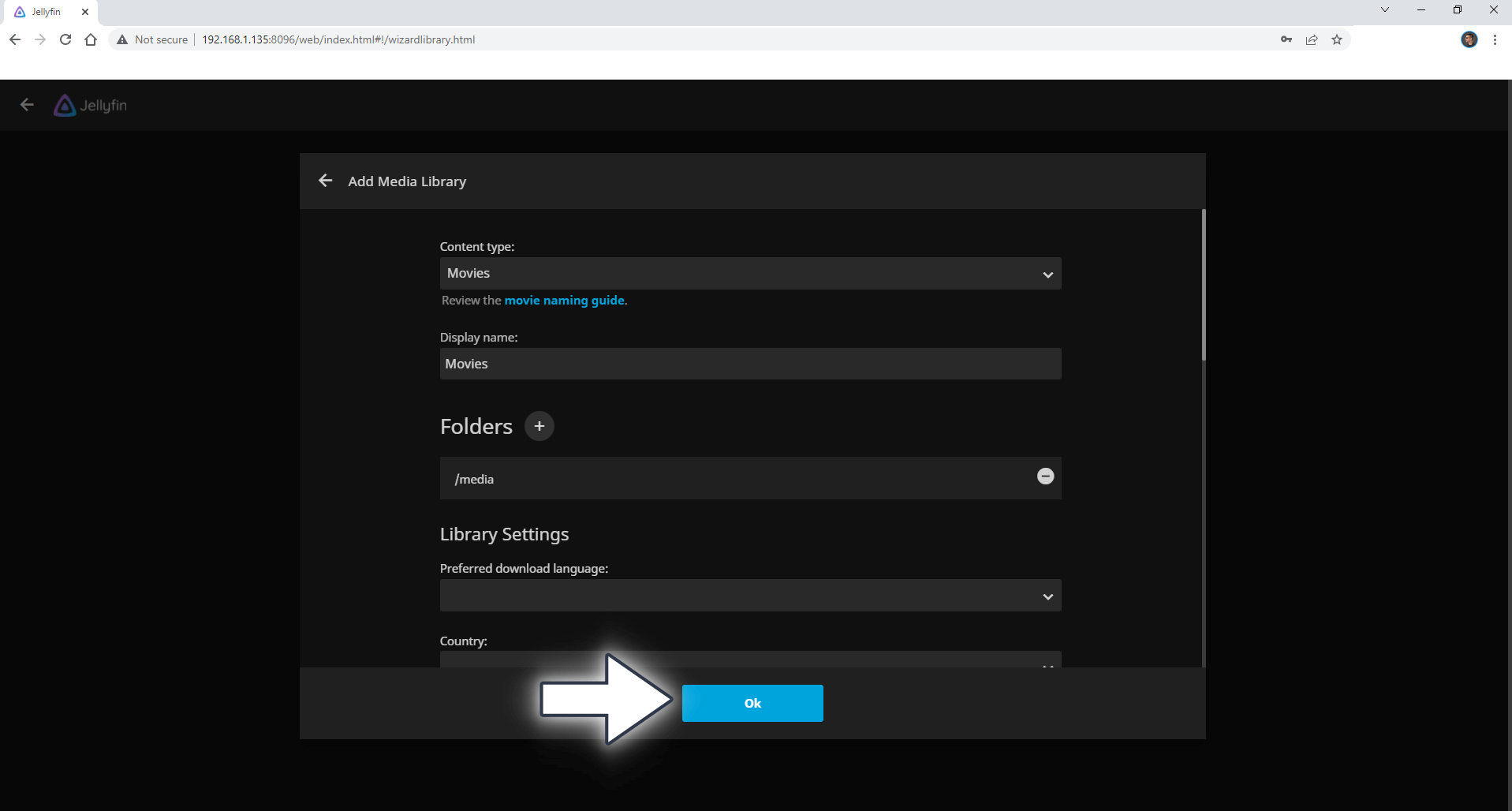
STEP 16
Click Next. Follow the instructions in the image below.
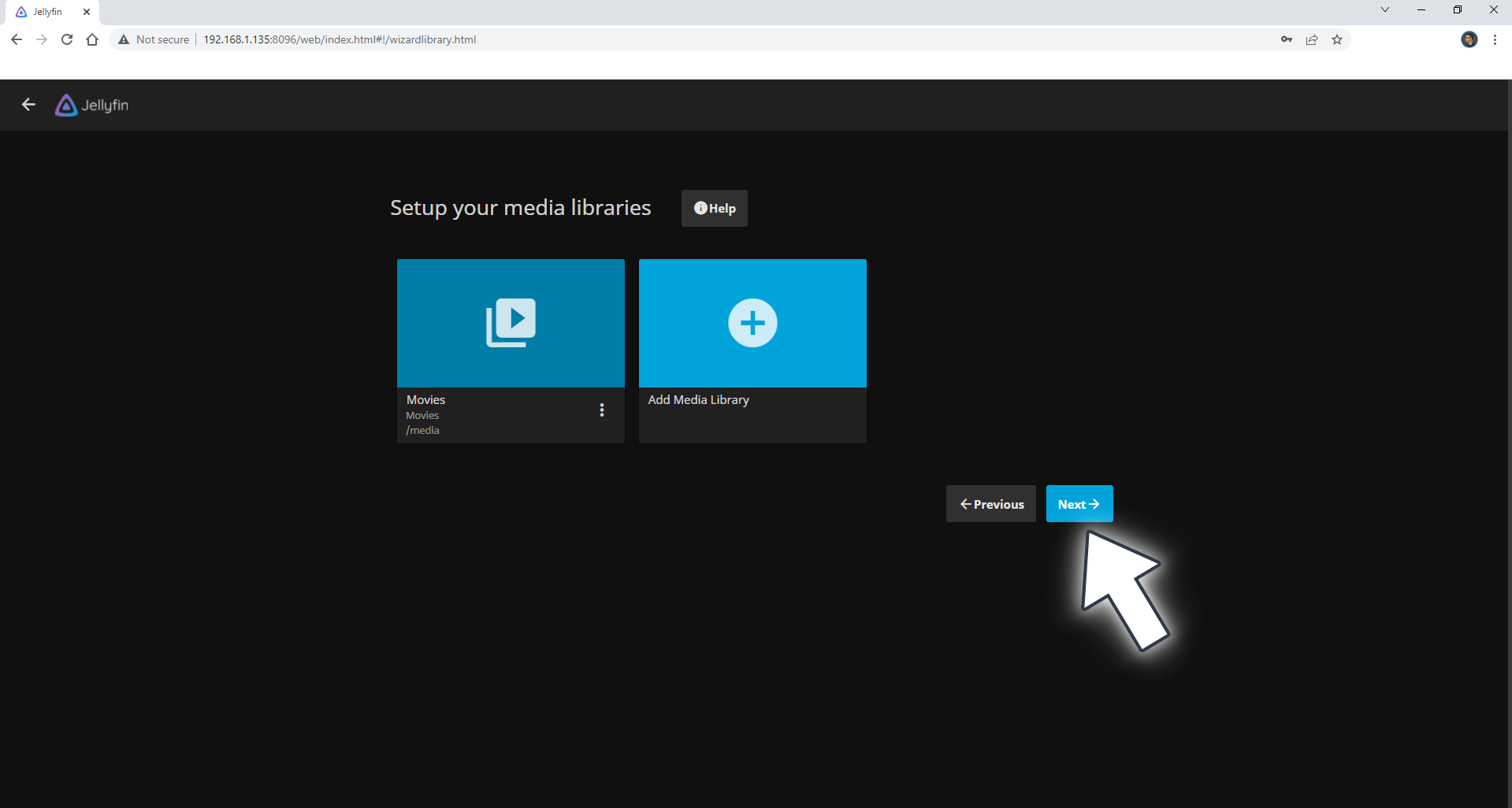
STEP 17
Select your Preferred Metadata Language then click Next. Follow the instructions in the image below.
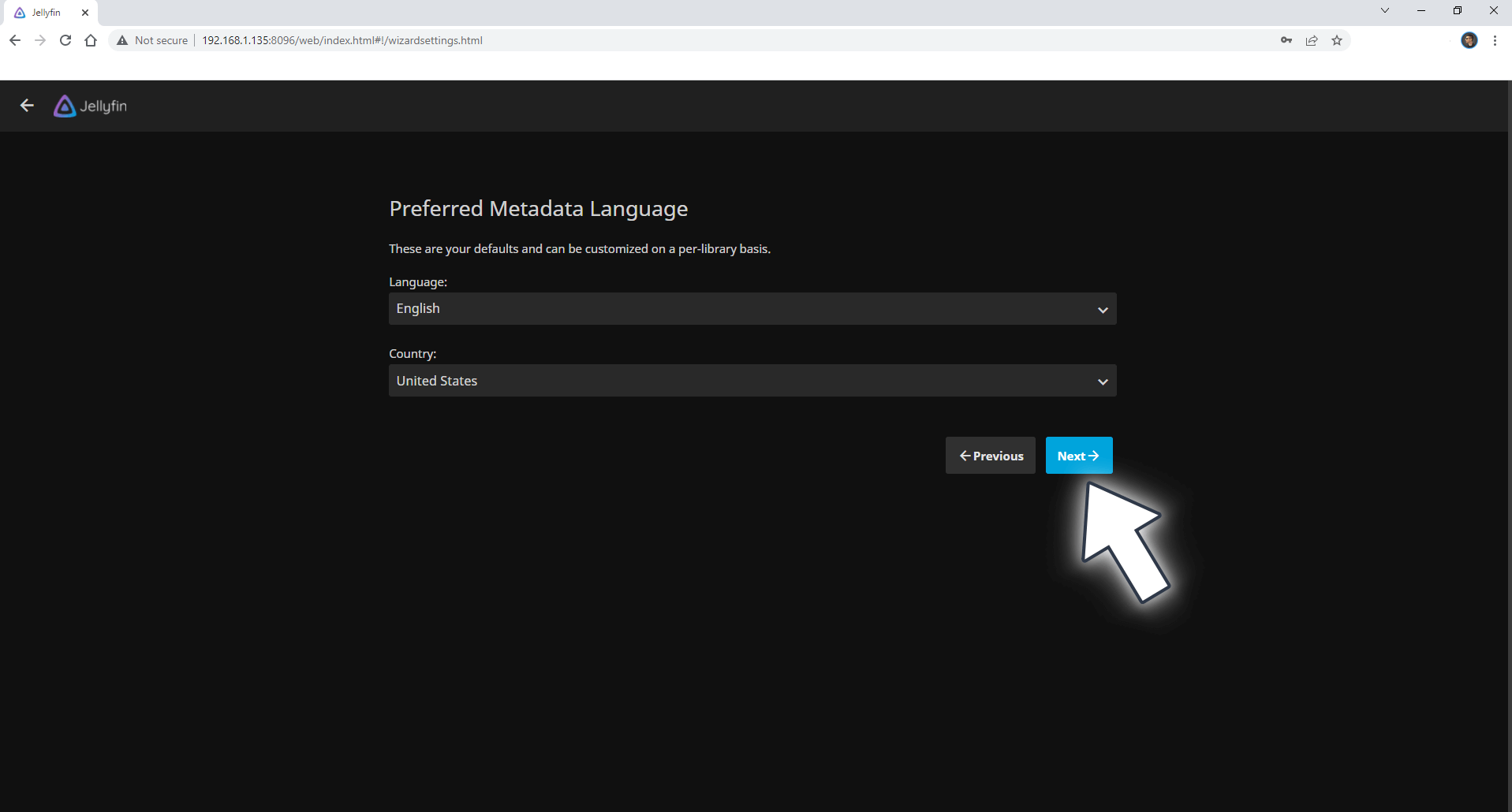
STEP 18
Check “Allow remote connections to this server.” Click Next. Follow the instructions in the image below.
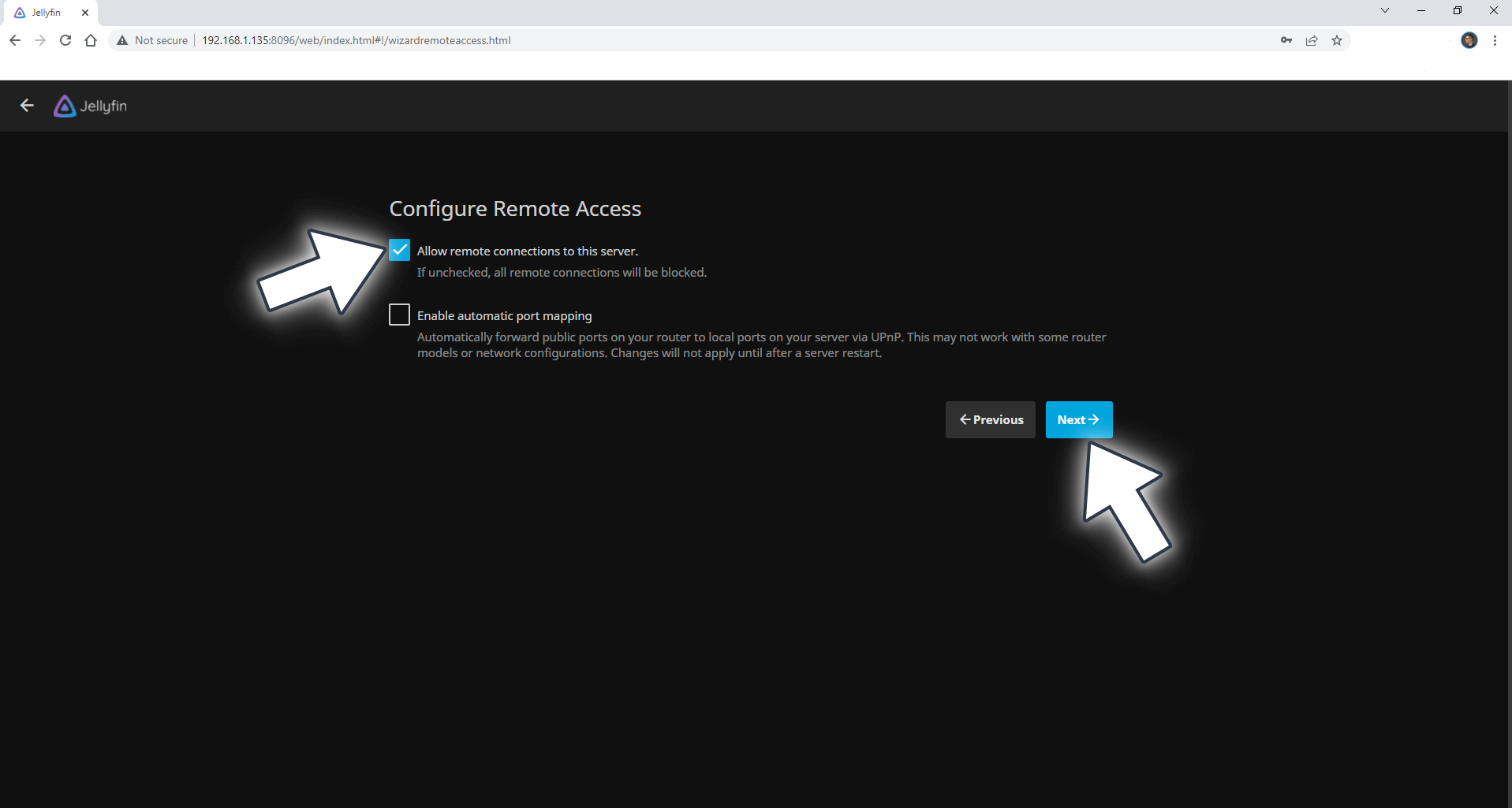
STEP 19
Click Finish. Follow the instructions in the image below.
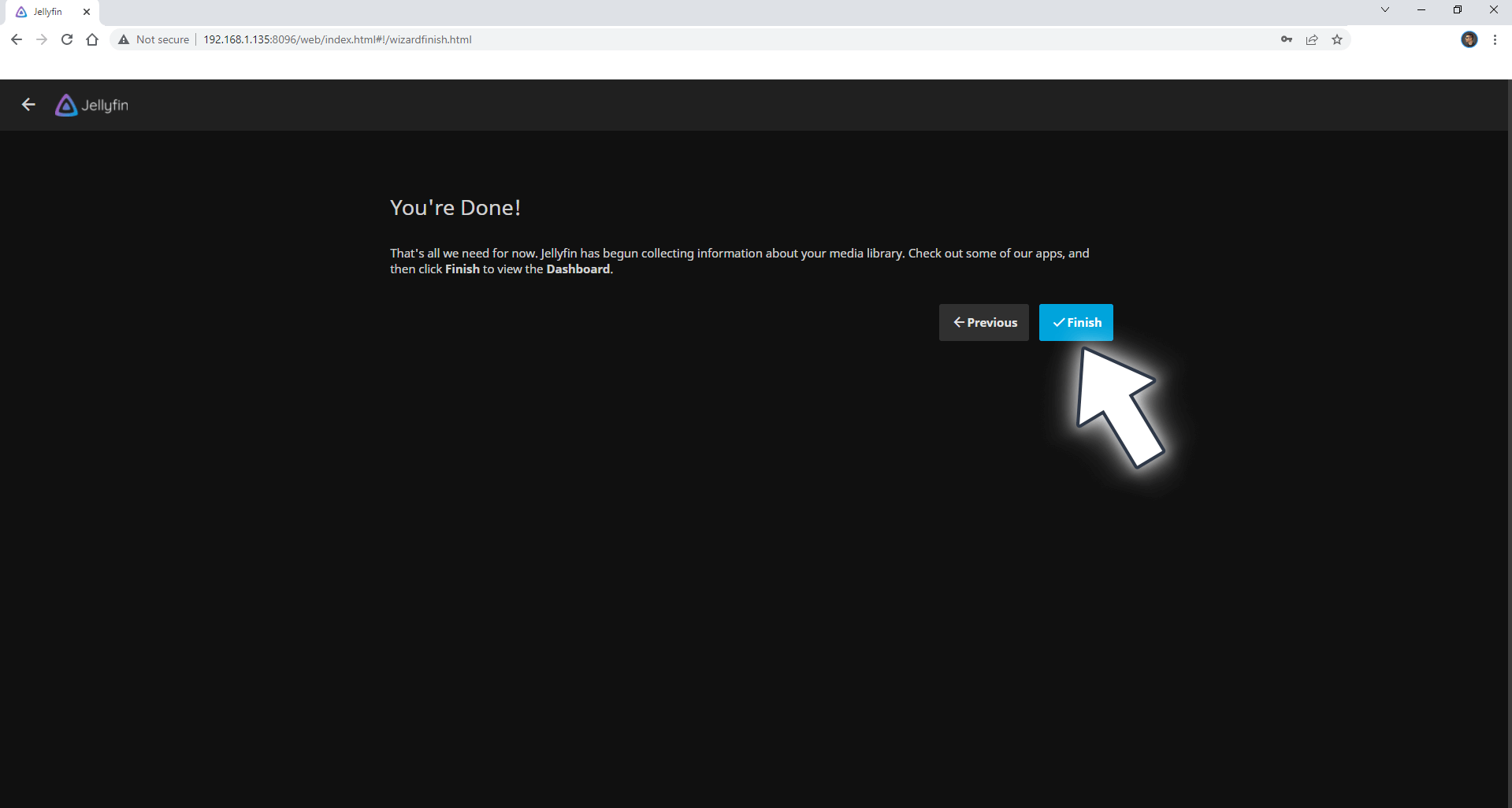
STEP 20
Add your own username and password you have previously chosen at STEP 11. Click Sign In. Follow the instructions in the image below.
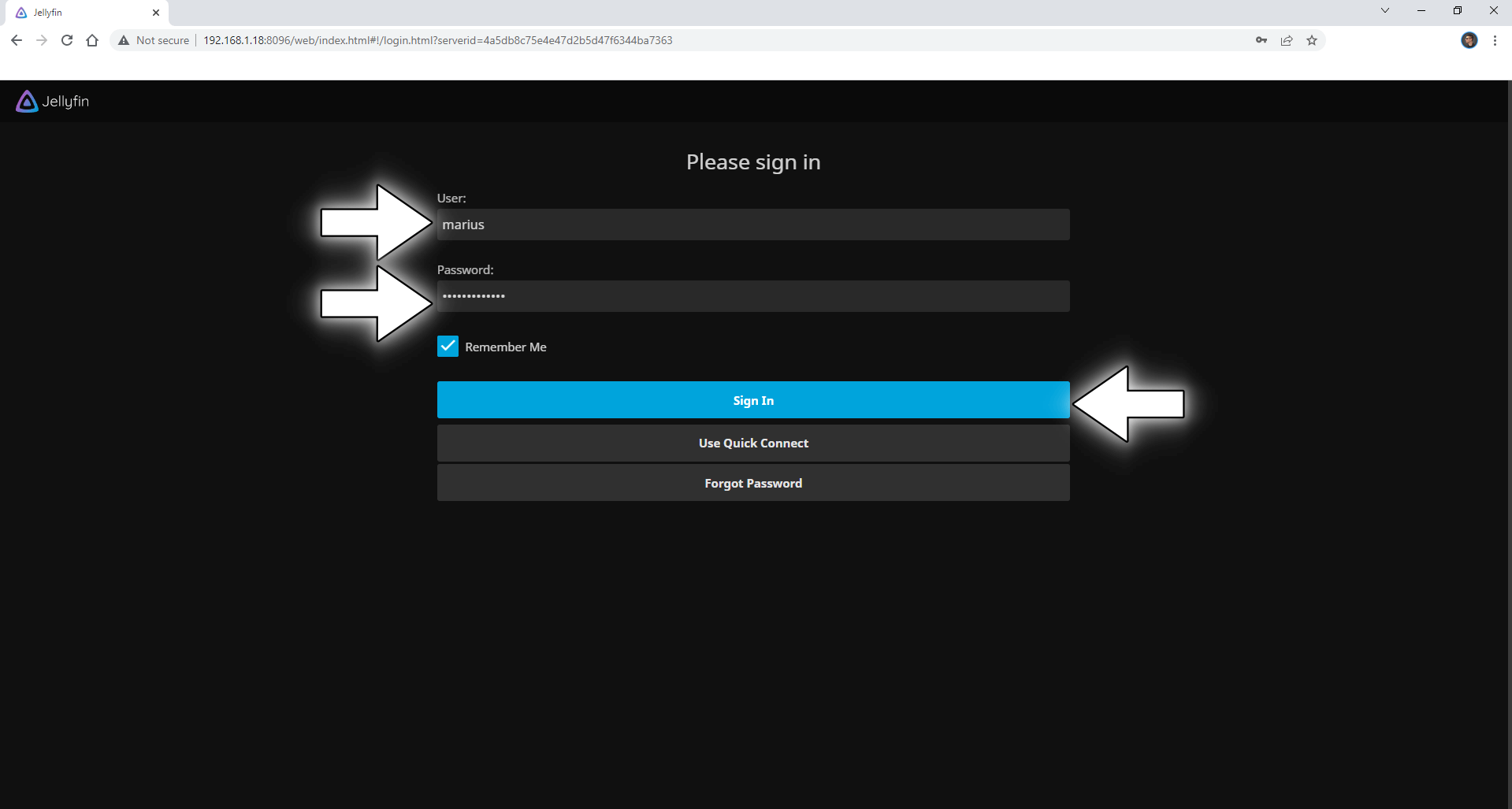
STEP 21
Enjoy your Jellyfin! You can also use Jellyfin android app, browser etc.
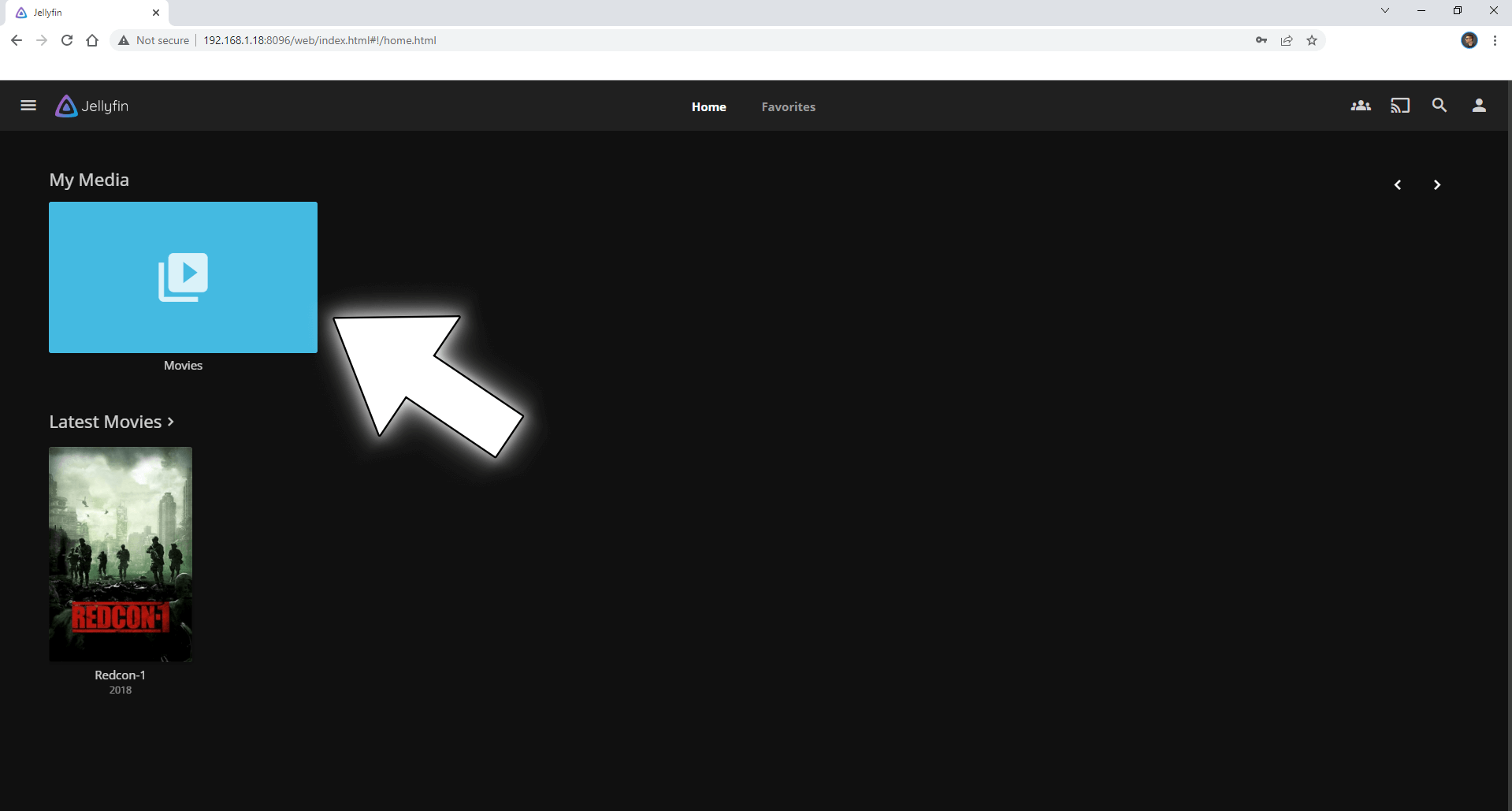
STEP 22
Note: If you want to run the Jellyfin container over HTTPS, check How to Run Docker Containers Over HTTPS. In order to make Jellyfin work via HTTPS, it’s mandatory to activate WebSocket.
STEP 23
Install Jellystat on Your Synology NAS.
Note: Find out how to update Jellyfin container with the latest image.
Note: Can I run Docker on my Synology NAS? See the supported models.
Note: How to Back Up Docker Containers on your Synology NAS.
Note: If you experience permissions problems, just right mouse click on your folder where you have your videos stored. Click on Property, Permission tab, Create tab, user & group search for SYSTEM then add read / write to SYSTEM and click Done. Check Apply to this folder, sub-folders and files then click Save. Now try again: open your browser and type in http://Synology-ip-address:8096
Note: Most paid Plex features are free with Jellyfin.
Note: Jellyfin is Open Source.
Note: How to Free Disk Space on Your NAS if You Run Docker.
Note: How to Schedule Start & Stop For Docker Containers.
Note: How to Activate Email Notifications.
Note: How to Add Access Control Profile on Your NAS.
Note: How to Change Docker Containers Restart Policy.
Note: How to Use Docker Containers With VPN.
Note: Convert Docker Run Into Docker Compose.
Note: How to Clean Docker.
Note: How to Clean Docker Automatically.
Note: Best Practices When Using Docker and DDNS.
Note: Some Docker Containers Need WebSocket.
Note: Find out the Best NAS Models For Docker.
Note: Activate Gmail SMTP For Docker Containers.
This post was updated on Tuesday / January 20th, 2026 at 11:45 AM
